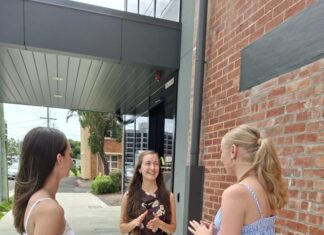For more than 150 years, Queensland’s sugarcane industry has been a cornerstone of our state and regional economies.
But growers are not just economic drivers – they are also committed environmental stewards.
Over the past two decades, we have made significant strides in reducing the risks to water quality in catchments flowing into the Great Barrier Reef.
However, to keep this progress going, it’s time for a fresh approach that puts growers at the centre of smarter, more practical government investments in water quality programs.
For too long, water quality initiatives have been developed without enough input from growers, who understand their land better than anyone.
These programs need to be shaped by local, practical knowledge, accounting for the unique conditions of each catchment.
A more region-specific approach should combine smaller ‘Edge of Field’ solutions, like vegetated drains and sediment traps, with larger interventions like constructed wetlands.
Developed only with the landholder at the centre of the design and the delivery.
Only landholders know how these programs need to address broader issues such as feral pests, riverbank erosion, unmanaged river flows, and flood risks.
Growers have already proven their commitment through voluntary accreditation in the industry-led best management practice program, Smartcane BMP, which covers nearly 50 per cent of Queensland’s cane land and has delivered real improvements.
Asking for even more farm practice changes alone isn’t fair.
The government needs to recognise the limits of what can be achieved on the farm and focus on integrated catchment management.
CANEGROWERS has long advocated for a comprehensive approach – programs that are developed in close consultation with farmers and tailored to each catchment’s needs.
These initiatives should not only seek to support river health, improve riparian zones, and reduce flood risks, all while keeping farming communities viable and farmers profitable.
As the election nears, candidates must prioritise realistic, effective water quality programs.
This isn’t about ticking boxes – it’s about achieving lasting environmental benefits while securing the future of Queensland’s sugarcane industry.
With the right leadership, we can reduce risks to water quality, improve our catchments, and ensure strong, sustainable rural communities.
Growers are the best stewards of their land, and they must be at the heart of any designs and delivery of solutions.
By working together, government and farmers maintain healthy catchments and support a resilient and healthy Great Barrier Reef.
Now is the time for a fresh, realistic approach that benefits both the environment and the industry.









